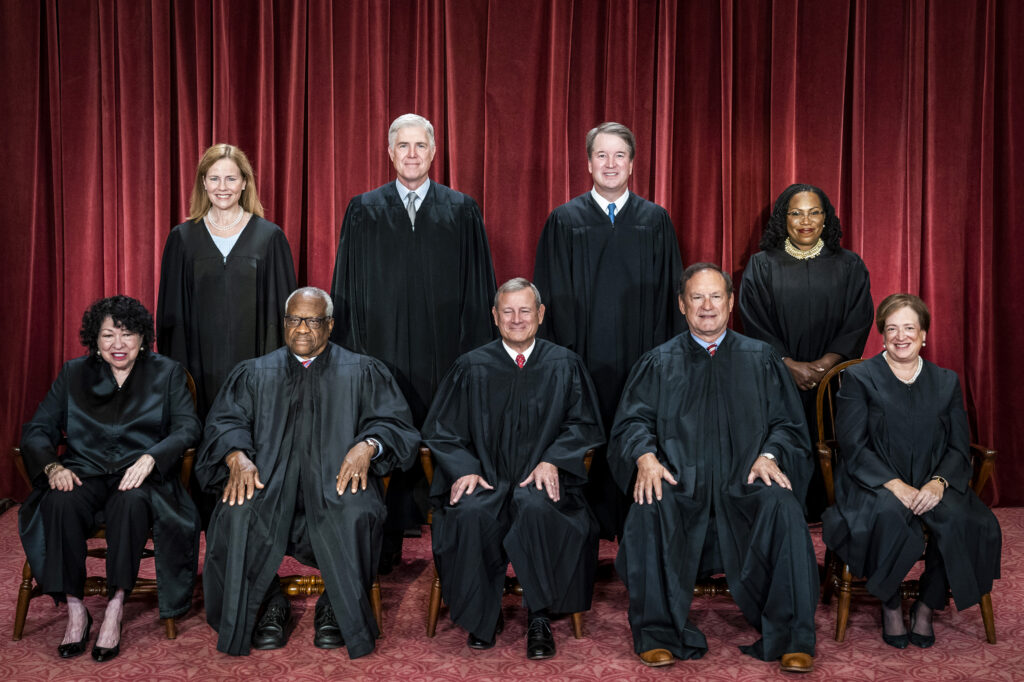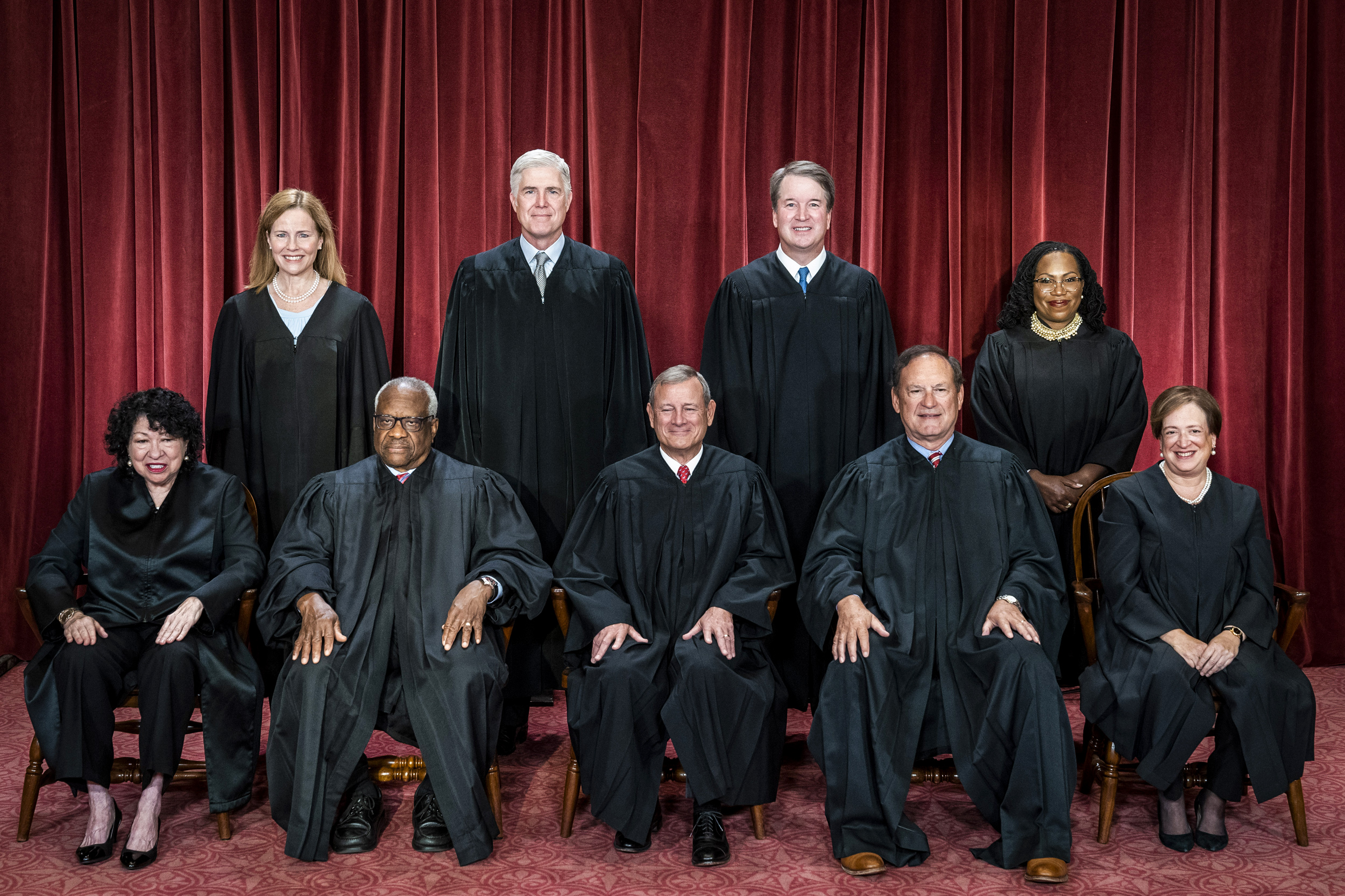
Thomas sits to the left of Chief Justice Roberts.
Many people ask me, “Hey Jim, how do you do it? How do you write and speak on, (and once a year, teach) ethics? After all, you must face the same trials and travails as the rest of us have, right? When ethical decisions get difficult, how do you make the tough calls?”
Well, I’ll let you in on a little secret: I wing it.
Look at Representative George Santos from New York. He’s facing a 23-count superseding indictment that ranges from making false statements to wire fraud. How does the US Representative get away with it? He wings it with a number of excuses and rationalizations. And it must be working because his colleagues in the House refuse to expel him (well, a jury of House Republicans seem to be reconsidering this.)
I mean it when I teach students that ethical decision-making determines the direction and course of our lives. But in my own life . . . sometimes I just wing it.
I tell my wife, “Yes honey, I did take the trash out today,” when I really didn’t. Or when I get a penalty notice from the federal government for not getting my quarterly taxes in on time, I wing it by saying that “I was attending a crucial ethics conference in Cancun.” This is why I was relived to read that the highest court in the land just released its ethics code.
In a nicely typed 14-page document that certainly looks sincere, they write, “For the most part, these rules and principles are not new: The Court has long had the equivalent of common law ethics rules, that is, a body of rules derived from a variety of sources, including statutory provisions, and” yadda, yadda.
The court adds an explanation—a sort of escape clause to cover all the fuss about how Justice Clarence Thomas received gifts, travel expenses, or real estate deals: the code does not place specific restrictions on gifts, travel, or real estate deals. Now, that’s something Thomas can (Harlan) Crow about.
But it does caution the justices that they should not take part in outside activities that ‘detract from the dignity of the justice’s office.’”
So, how did Associate Justice Thomas make the “tough” ethical decisions that came his way and didn’t hesitate to leave it off his yearly report? He winged it, of course.
Okay, class, raise your hands if you think that the “dignity” of Thomas’s office has been tarnished . . . 5, 10, 22 . . . 46… all 50 of you agree.
The New York Times reports that “the rules also prohibit justices from allowing ‘family, social, political, financial or other relationships to influence official conduct or judgment.’ The document cites examples of when justices must recuse themselves from a case, including when they have a ‘personal bias’ or a ‘financial interest.’” Does that include Virginia Thomas?
It’s sad to note that Justice Thomas replaced retiring Justice Thurgood Marshall, a civil rights icon who knew the difference between right, wrong and the perception thereof.
Comments











